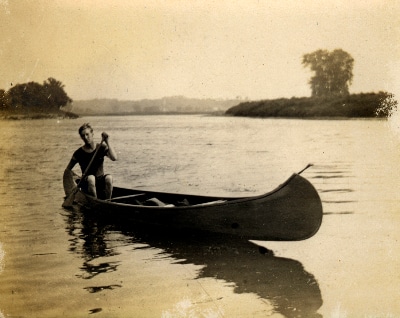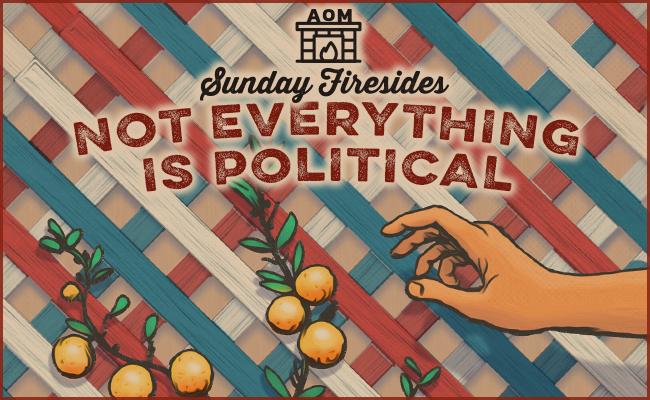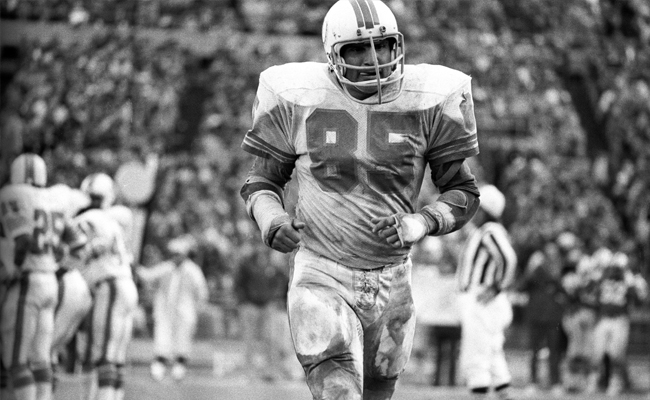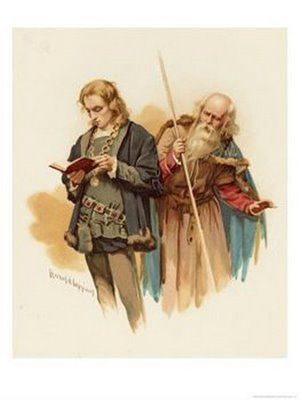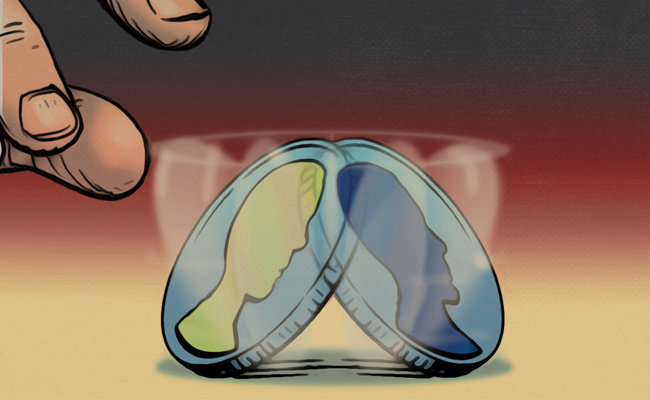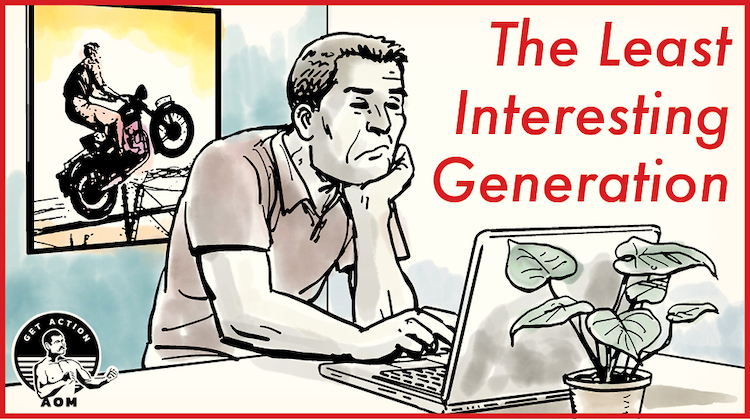
Before Steve McQueen’s 18th birthday, he had worked on a farm, joined a circus, sold pens at a traveling carnival, hitchhiked and rode the rails across the country, worked as a lumberjack in Canada, labored on a chain gang in the Deep South (punishment for the crime of vagrancy), served a short (and illegal — he was underage) stint in the Merchant Marine, and joined the Marine Corps for a three-year enlistment. After getting out of the service, the newly-minted veteran moved to New York City, where, as reported in Steve McQueen: In His Own Words, “He handcrafted sandals, lugged radiators out of condemned buildings, loaded bags in a post office, ran errands for a local bookie, recapped tires in a garage, sold encyclopedias door-to-door, made artificial flowers in a musty basement, sold pottery in a large department store, and repaired television sets.” Before he finally found success as an actor, McQueen would also drive and repair taxi cabs, sling drinks as a bartender, and try his hand at laying tile.
While the sheer breadth and adventurousness of Steve McQueen’s resume was unique, having an interesting and varied background was actually quite common amongst actors of his generation.
Before making it in movies, Sean Connery served in the Royal Navy from ages 16 to 19 (voluntarily; this was after World War II), and worked as a milkman, lifeguard, truck driver, laborer, and artist’s model. He competed in bodybuilding competitions and once used his strength to take on a group of cutthroat gang members who had been harassing him; though it was a six-to-one fight, Connery so held his own (at one point putting two of the thugs down by clunking their heads together), that he earned the gang’s respect as a “hard man” and was subsequently left alone. As a 16-year-old, James Garner did a stint as a merchant mariner at the end of WWII, then joined the Army National Guard; he served 14 months in Korea as a rifleman and earned two Purple Hearts for being twice wounded. Even Paul Newman, who was a little prettier than his contemporaries, served as a turret gunner in a torpedo bomber during the Second World War.
Writers of the early to mid twentieth century had similarly compelling backgrounds.
By the age of 22, Jack London had worked in a cannery, electrical plant, and laundry facility, taught himself to sail, evaded the law as an oyster pirate, tramped around the country by rail (which earned him, like McQueen, a conviction for vagrancy and a month-long stint in jail), traveled the Pacific aboard a seal-hunting schooner, and ventured into the Klondike in search of gold.
Before Ralph Ellison turned 25, he had attempted to become a professional trumpet player, lived at a YMCA in New York City (where he met Langston Hughes), and worked as a shoeshine boy, waiter, short-order cook, drugstore clerk, paperboy, janitor, baker, receptionist for a renowned psychiatrist, dentist’s assistant (though only 12 at the time, “he learned,” a biography reports, “how to cast inlays, pour plaster-of-Paris models, and make crowns and some of the simpler bridges”), tailor’s assistant, sculptor’s assistant, and laboratory assistant at a paint company. When he was accepted to the Tuskegee Institute, he couldn’t afford the train ticket to get there, so he hoboed his way over on a freight line, ever on the lookout for the guards who searched for trespassers and often did violence to those they found.
During WWII, J.D. Salinger earned the rank of Staff Sergeant in the Army while participating in five campaigns, including ones which took him through D-Day and the Battle of the Bulge, and into a concentration camp. After the war, he re-upped to serve “Denazification” duty in Germany as part of the Counterintelligence Corps.
Ernest Hemingway learned fishing, hunting, and bushcraft skills as a toddler; worked on a farm at 15, took a weeks-long backpacking trip at 16 (subsisting on fish he caught himself), and served as an ambulance driver in WWI at age 18. As an aid worker, he earned the Italian Silver Medal for Valor for carrying a wounded soldier to safety, while being hit with gun and mortar fire twice himself.
Many of these men not only undertook adventurous exploits in their youth, but continued pursuing diverse, risk-taking explorations and hobbies after they found breakthrough success in their later years as well. And though we know about their compelling backgrounds because they created culturally significant work and thus had their life stories recorded, it isn’t the case that having such interesting resumes was limited to the creative class, or to the uber successful; pick up a biography of a twentieth-century business executive or military commander, or simply the journal or personal memoir of own’s one grandfather or great-grandfather, and you’ll find that most had similarly varied and evocative experiences. They hunted, worked a farm or ranch, tried some manual labor jobs, went to sea, fought in one world war or the other, and so on.
Today, the situation is much the reverse. It is very rare to find an individual — whether they’re hugely successful or just an average joe — who has even a modestly interesting background, much less a McQueen-esque one.
The bio of a modern writer generally reads something like this instead: “So-and-so grew up in the suburbs of ____ city. He went to ____ liberal arts college and got a degree in English. Then he wrote a bestselling book.” (It is instructive to simply compare the length of the early-life/pre-career sections of the Wikipedia pages of writers/actors/musicians who came to prominence in the early-to-mid twentieth century, with those who did likewise in the late twentieth/twenty-first; the latter tend to be dramatically shorter.)
The average, non-Wikipedia-ized man has a similar life story, minus the public acclaim: Grew up in the suburbs; worked making sandwiches, waiting tables, and answering the phones at a call center; went to college; took an office job with some corporation; moved back to the suburbs. It’s a background that can be summarized in a few, not very compelling, words.
The purpose of making this observation isn’t to cast aspersions on members of the modern generation for their comparative boring-ness. As it’s largely not our fault. For reasons both easier and more difficult to explain, the world has changed greatly over the last 50 years in ways that make it harder to have the kind of varied, adventurous experiences that men who came of age a century ago regularly did.
While it’s still technically possible to find farm or manual labor jobs, and even to (illegally) ride the rails or hitchhike across the country, guys who grew up in the suburbs typically don’t have the skills, know-how, or simply the confidence to try their hand at those kinds of pursuits, and they don’t know who to ask or where to go to even explore the possibility.
The expectations of family members and peers have changed as well; the “normal,” accepted thing for a young adult to do is to play it safe, stick around town, and take a job as a barista. Hemingway’s parents didn’t think anything of their teenage son heading out in the woods to live off the land; even if modern parents allowed their kid to do likewise, neighbors would probably call the Department of Children and Family Services to investigate a clear case of neglect.
The most transformative change in cultural expectations centers on higher education. With the exception of Paul Newman, none of the men mentioned above graduated from college; some of them dropped out of high school. Today, every young adult is expected to attend, and finish, college, and any detours that might sidetrack this trajectory, or diminish the sterling resume that’s needed for admission to a good school (particularly a criminal conviction!), are greatly discouraged.
In an even more concrete way, the rise of digital technology has sapped even those outlets for interesting endeavors which do remain of much of what Jack London called “the spirit of romance and adventure.” Even twenty years ago, you could backpack across Europe and be entirely unreachable for long stretches of time. “Want to get me a message? You can call me at a hotel in Budapest in three weeks.” There’s almost nowhere you can now go where you cannot be found. And this degree of interconnection not only makes adventures feel less romantic, but robs them of some of their transformative power. While problems encountered along one’s travels used to have to be navigated (literally and metaphorically) with some nervous self-reliance, uncertain improvisation, and mustered-up gumption, they can now often be resolved instantly and seamlessly with a few taps on a smartphone.
And then there’s the most concrete reason that courage-requiring, eventful experiences are harder to come by these days: there hasn’t been a world war in 75+ years. Today’s young men aren’t being called up to serve as a turret gunner, or a rifleman, or a counterintelligence agent, but instead grow up in a time of pervasive peace and plenty.
So, no, in observing the comparative dullness of the modern generation’s life stories, the intent is not to be accusative, but simply descriptive. To explain some cultural phenomena and individual feelings that many have experienced but been unable to trace or articulate.
For one thing, it helps put a finger on a sense of real-if-hard-to-admit deprecation and longing that many of us Millennials experience. We may not feel that the criticism over things like spending too much on avocado toast and lattes is justified, but, in quiet moments alone, we do feel a sense that something in our cohort is lacking. That feeling of lack is arguably rooted in a deficiency in “seasoning,” the kind that comes from breadth and depth of life experience, and which communicates confidence and gravitas to others, as well as to oneself. It’s a lack that’s rooted in the sense that there’s an itch amongst us that hasn’t entirely been scratched.
The above observations also explain why neither modern artists, nor the work they produce — even when excellent — feel as compelling when compared to their predecessors.
Though there are modern actors who have the good looks and charm of a McQueen . . . there’s still some discernible “it” missing in their make-up. And that “it” is a personal history that includes an expansive, field-tested participation in life. With past actors, the fact that they’d seen some stuff, done some stuff, inevitably colored their personalities, and their performances. Their acting had an incomparable, and ultimately iconic, swagger, because it drew on their rich range of firsthand experiences. While the cool quotient that modern actors evince seems to stop at the surface, the coolness of older-era actors seems to run to a greater depth.
Similarly, while there may be great, well-written new novels published these days, none truly feel “classic.” They don’t seem like they’re going to endure in the cultural canon the way the works of Hemingway and London have. While there may be multiple, debatable reasons as to why this is, surely one of those reasons is because the literature of the past drew more heavily on the concreteness of lived experience. If books from the twentieth century do feel weightier somehow, it’s because their authors were able to imbue their works with the pulse of real blood, sweat, and tears. Though these writers lacked university degrees in their craft, their words carry a special resonance, for they had seen death and fear up close, wrestled with nature, and made contact with multiple layers of the human condition. Modern literature, in contrast, draws more from the world of abstraction — more from what the authors imagine the keenest dramas of the human experience would be like.
In making these observations, in explaining these feelings, the message isn’t that modern men have no hope of living an interesting life. While much of the spirit of romance and adventure has passed from the earth, there is still travel to undertake, physical challenges to pursue, and worthy landscapes to explore. The message is not, not to try! How big of a difference there still is between the man who does all he can to keep pushing himself and seeking new vistas, and he who completely surrenders himself to an ordinary, staid existence!
It’s simply good to understand why it is that when one surveys the media of modern culture, or interacts with others, or assesses one’s own state, one often gets a peculiar sensation of emptiness; it’s simply good to understand why it is that when one goes looking in such spaces and places, one so frequently comes away with a feeling of disappointment — the sinking realization that, alas, there’s nothing there, there.


